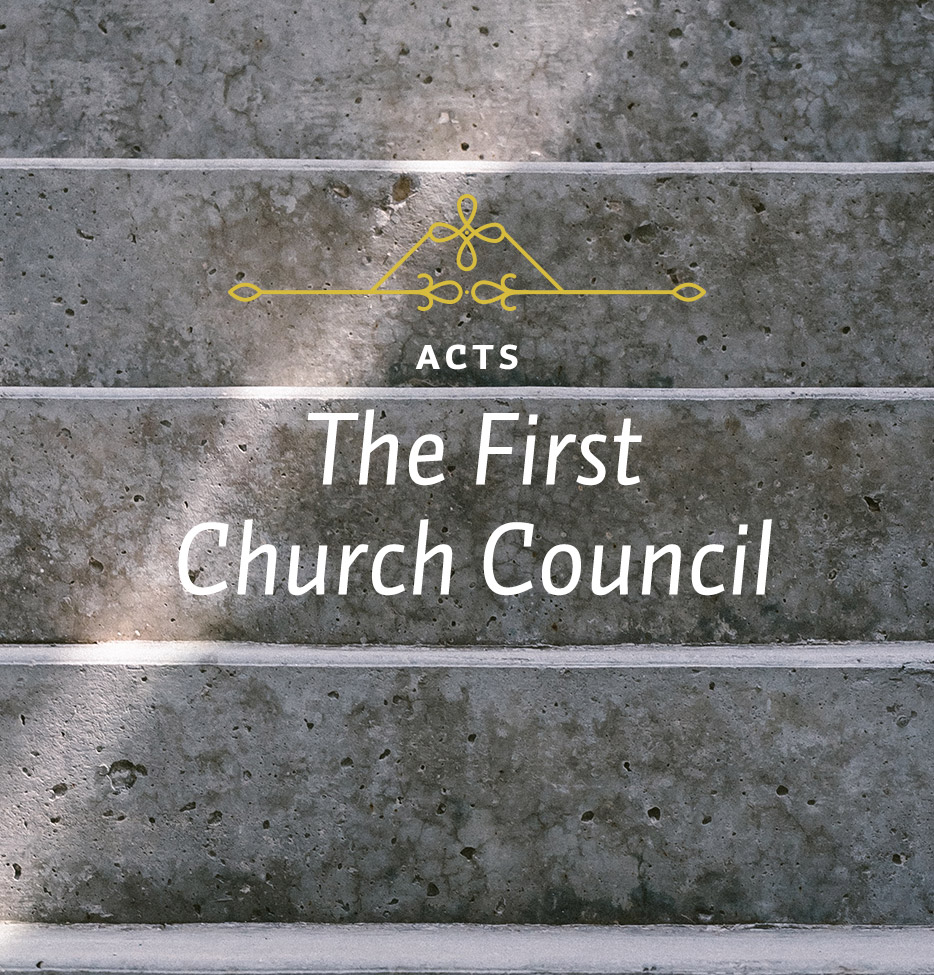Luke reports the speeches of three people—four, if we count Paul and Barnabas separately. The first whose words he reports is Peter, but there were many who had spoken before him. Verse 7 says that it was “after much discussion” that Peter made his speech. This means that there were pros and cons, and that Peter, Paul, Barnabas, James and the others let them air their positions.
After this discussion, Peter gave his testimony: “Brothers, you know that some time ago, God made a choice among you that the Gentiles might hear from my lips the message of the gospel and believe” (v. 7). I find this approach interesting, primarily because Peter was not trying to speak ex cathedra at this point, as some think he could have done. One branch of the church regards Peter as the first pope and believes that a pope, speaking ex cathedra, that is, “from [his] throne” officially, is authoritative and inerrant. Peter did not speak that way. Instead, he simply repeated what God had done.
This was common knowledge. Peter had received a vision in Joppa which led him to go to the house of the Gentile centurion Cornelius. God had told him not to call “unclean” anything God had called “clean.” So when he had a chance to preach the Gospel to Cornelius and his household, Peter did it, and the Gentiles believed. Then God gave them the Holy Spirit, just as He had given the Holy Spirit to the first Jewish converts.
Peter does not use the word “circumcision” at this point. He talks about God giving the Holy Spirit instead. But what he was saying is that God saved the Gentiles of Cornelius’ household apart from circumcision: “He made no distinction between us and them” (v. 9). The conclusion is obvious. If God had not made a distinction between Jew and Gentile, giving Gentiles the Spirit just as he gave the Spirit to the Jews, then it must follow that the Gentiles can be saved apart from becoming Jewish people.
Peter made a second point which was also important for the Jews to hear. He said, “Why do you try to test God by putting on the necks of the disciples a yoke that neither we nor our fathers have been able to bear?” (v. 10). Peter was acknowledging that Jews had not been able to keep the law of Moses. They had tried but failed. Therefore, if they were to be saved, it would have to be by grace, even in their case, and not by keeping the law.
In verse 11 we notice something else. I think that of all the surviving words of Peter, these are perhaps the most gracious. Peter says, “We believe it is through the grace of our Lord Jesus Christ that we are saved, just as they are.” Why is that so gracious? It is because Peter, the Jew, would normally have said it the other way around. He would have said, “We believe that they can be saved by grace through faith, just like us.” That is, they can be like us. But that was the issue, you see. Did they have to become “like us” or not? Because he knew the answer to that question Peter turned it around, saying, “We believe that by grace even we Jews can be saved, just like the Gentiles.”
Do you ever think that other people have to become like you to be saved? If so, you are probably far from truly understanding the Gospel.
The second ones to speak were Paul and Barnabas. The text says, “The whole assembly became silent as they listened to Barnabas and Paul telling about the miraculous signs and wonders God had done among the Gentiles through them” (v. 12). It had probably been difficult for Paul to keep silent until now. He thought in terms of ideas, probably because much of his education had been received in a Gentile environment. The others at the council did not think this way. They thought in terms of God’s great acts and deeds. Paul probably wanted to jump up and clarify the Gospel for them.
But Paul was a wise man, and he showed his wisdom by what he did. He understood his audiences. When he spoke to Jews, he spoke as a Jew. When he spoke to Gentiles, he spoke as a Gentile. Here he was speaking to Jews, and he understood, as we would say, how the wind was blowing. Peter had shown how God had worked through him. So when Paul and Barnabas began, they picked up on that and did virtually the same thing. They did not argue theology. Rather, they told about all the miraculous signs that God had done among the Gentiles through them. The argument was: “God is working. Who are we to stand against God?”






